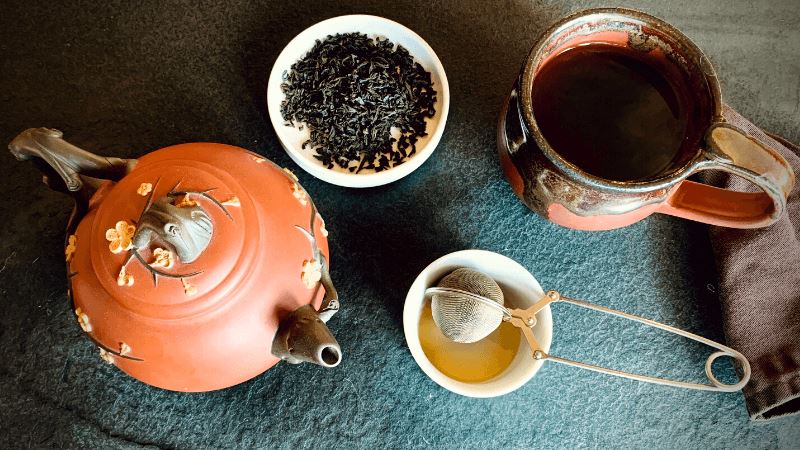- Empty cart.
- Continue Shopping
The Benefits of Herbal Teas

Herbal teas, also known as tisanes, have been cherished for centuries for their soothing properties and potential health benefits. Unlike traditional teas derived from the Camellia sinensis plant (such as green, black, and oolong teas), herbal teas are made from various herbs, fruits, flowers, and spices.
1. Relaxation and Stress Relief
One of the most well-known benefits of herbal teas is their ability to promote relaxation and reduce stress. Certain herbs like chamomile, lavender, and lemon balm contain compounds that have a calming effect on the nervous system. Sipping a warm cup of herbal tea before bedtime can help you unwind and prepare for a peaceful night’s sleep.
2. Improved Digestion
Herbal teas have been used for centuries as natural remedies for digestive issues. Peppermint tea, for example, can alleviate indigestion, bloating, and gas. Ginger tea is known to soothe nausea and aid digestion. These teas can be especially helpful after a heavy meal.
3. Antioxidant Properties
Many herbal teas are rich in antioxidants, which help protect the body from oxidative stress and free radicals. Rooibos tea, for instance, is a caffeine-free herbal tea loaded with antioxidants that support overall health. Antioxidants are believed to play a role in reducing the risk of chronic diseases.
4. Immune Support
Herbal teas like echinacea and elderberry are often consumed during cold and flu seasons to boost the immune system. These teas may help reduce the severity and duration of illnesses by stimulating the body’s natural defense mechanisms.
5. Anti-Inflammatory Effects
Certain herbal teas possess anti-inflammatory properties that can help alleviate inflammatory conditions like arthritis. Turmeric tea, for example, contains curcumin, a compound known for its anti-inflammatory and antioxidant effects.
6. Skin Health
Herbal teas like green tea and chamomile are known for their potential benefits for skin health. Green tea is packed with polyphenols that have been associated with clearer, more radiant skin, while chamomile tea can soothe irritated skin when applied topically.
7. Weight Management
Some herbal teas, such as dandelion and oolong tea, are believed to support weight management by aiding metabolism and digestion. While not a replacement for a healthy diet and exercise, these teas can complement a weight loss regimen.
8. Hydration
Herbal teas provide a delicious way to stay hydrated throughout the day. Unlike caffeinated beverages, most herbal teas are caffeine-free and can be enjoyed at any time without the risk of dehydration.
9. Better Sleep Quality
In addition to promoting relaxation, herbal teas like valerian root and passionflower can help improve sleep quality and combat insomnia. These teas may be particularly beneficial for those struggling with sleep disturbances.
10. Variety and Flavor
Herbal teas come in a wide variety of flavors and aromas, making them an enjoyable alternative to plain water. Whether you prefer the soothing taste of chamomile, the spiciness of ginger, or the floral notes of hibiscus, there’s an herbal tea to suit every palate.
Caution and Considerations
While herbal teas offer numerous benefits, it’s essential to exercise caution and consult with a healthcare professional, especially if you are pregnant, nursing, or taking medications. Some herbal teas may interact with medications or have contraindications for certain medical conditions.
In Conclusion, Herbal teas offer a delightful way to support physical and mental well-being. Whether you’re seeking relaxation, digestive relief, antioxidants, or immune support, there’s likely an herbal tea that suits your needs and tastes. Incorporating a variety of herbal teas into your daily routine can not only provide potential health benefits but also add a soothing and flavorful dimension to your life. Enjoying a cup of herbal tea is not only a moment of self-care but also a timeless tradition that can enhance your overall quality of life.








